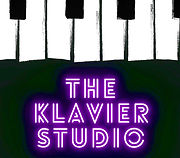
Classical Music
We believe learning should be joyful, and that every student deserves a personalised, encouraging experience.
We believe that learning music should be both fun and meaningful. While we enjoy every moment of creativity and play, we also value the importance of discipline, focus, and perseverance — especially when the journey gets challenging.
Whether you're dreaming of a career in music or simply want to play for the joy of it — at church, in the park, or with your community — we're here to guide you every step of the way.
We’d love to chat and help you take the first step in your musical journey. Let’s make music together!
What skills do we teach?
🎹 Strong Technique
Posture, hand position, tone production, and finger agility for confident playing.
🎼 Music Reading & Theory
Fluent note reading, rhythm, harmony, and understanding how music is built.
👂 Aural & Listening Skills
Training the ear to hear pitch, rhythm, and expression—essential for great musicianship.
🎨 Expression & Creativity
Learning to phrase beautifully, communicate emotion, and develop personal artistry.
🎻 Performance Skills
Stage confidence, memorisation strategies, and coping with nerves.
📚 Discipline & Growth
Practice habits, focus, and a lifelong love for music.
We follow the AMEB curriculum to build well-rounded musicians. Exams are optional—students can take them if they wish, but the focus is always on developing a love for music and strong skills.
